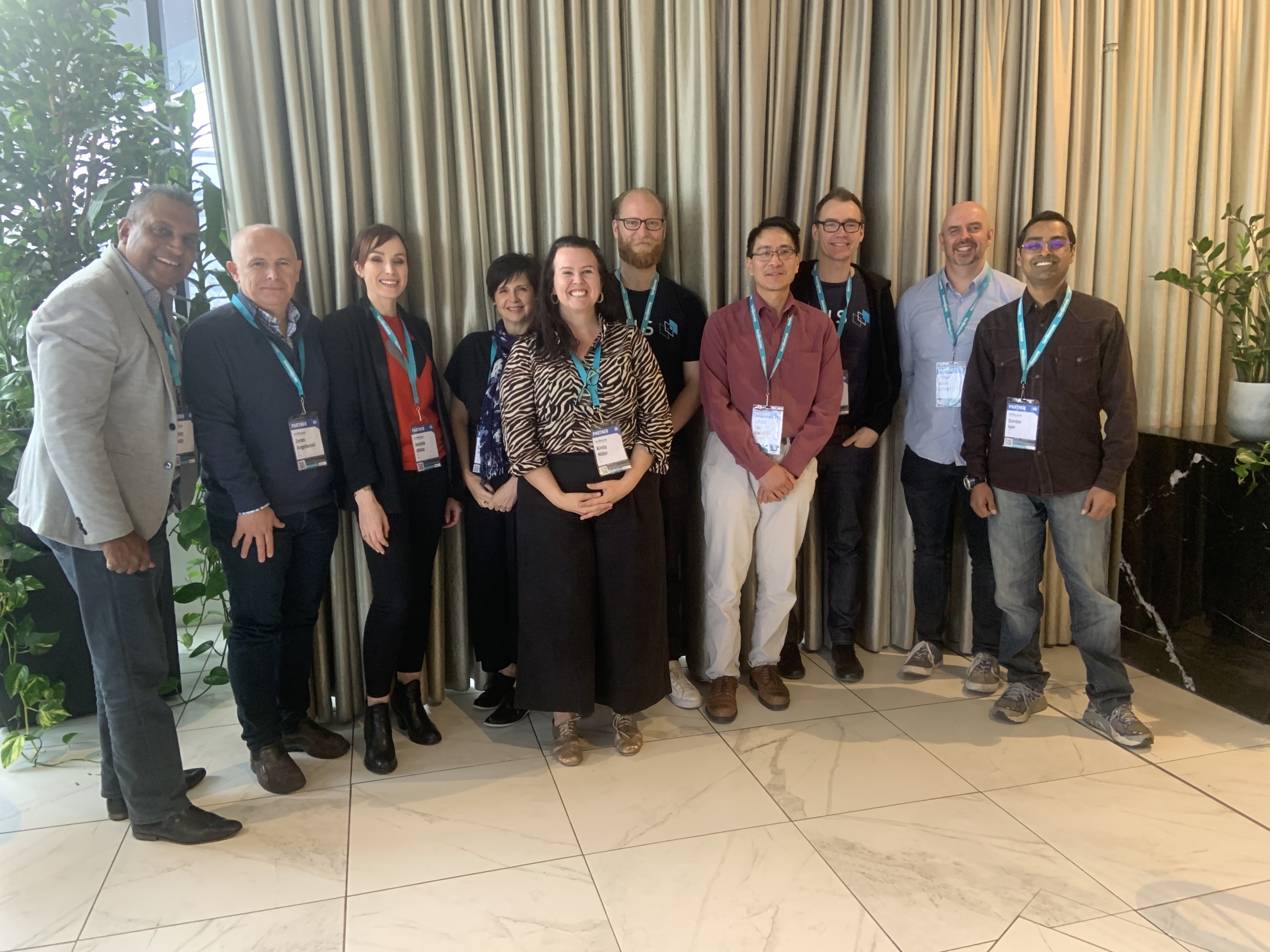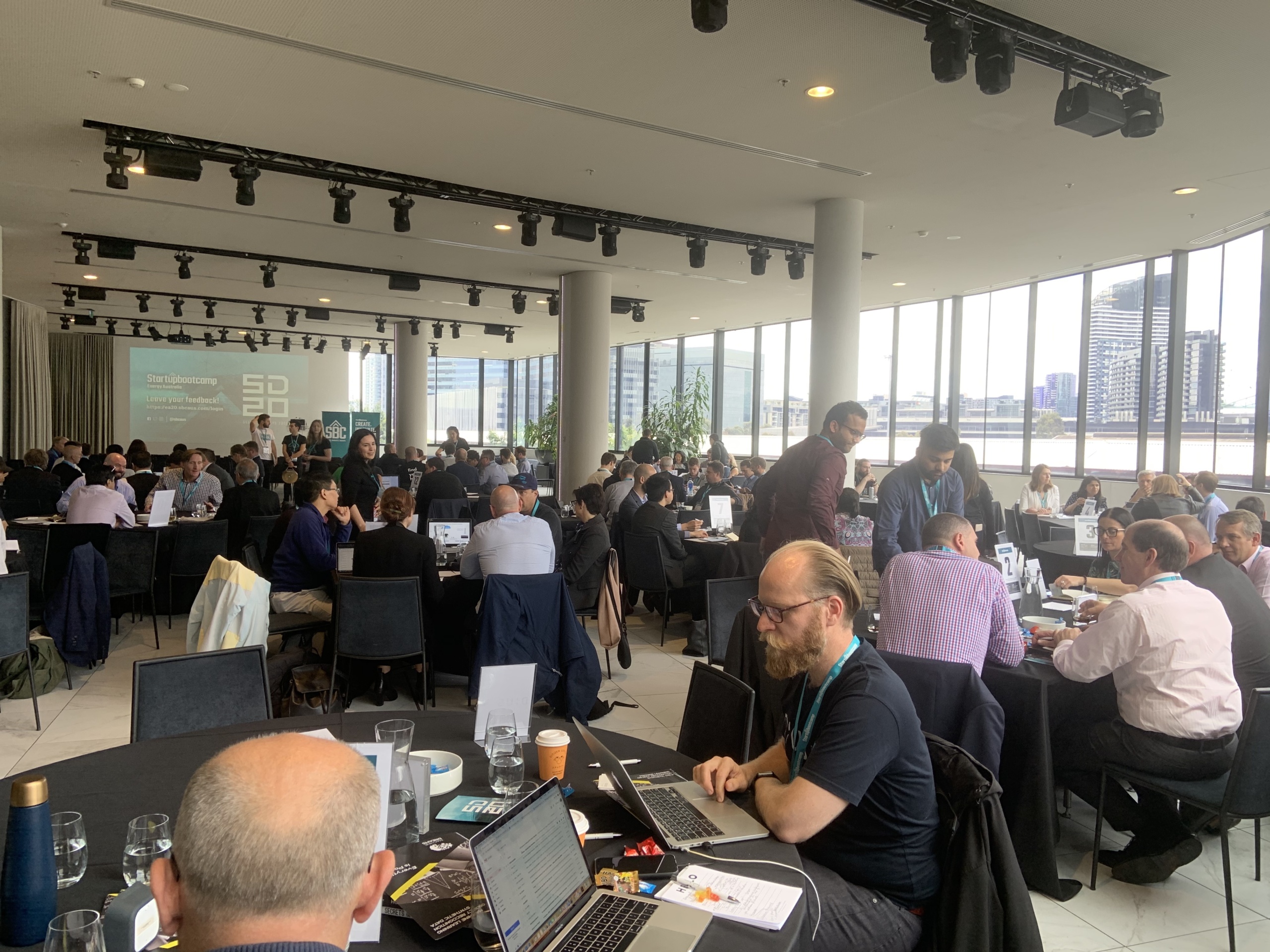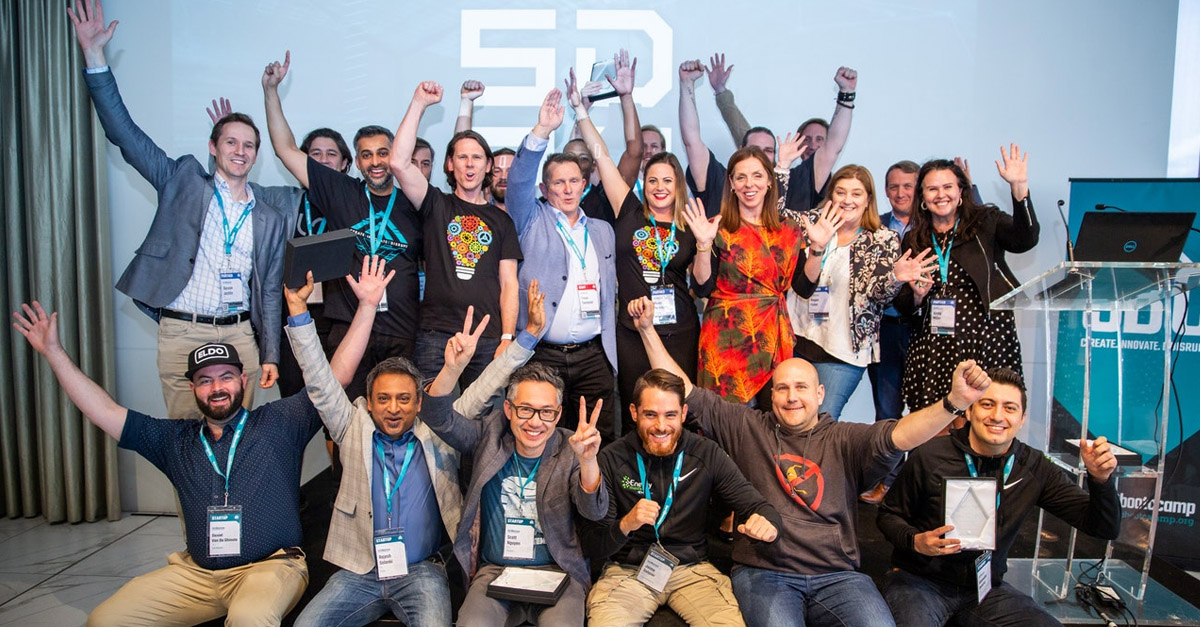Riding the global wave of decarbonisation, digitisation and decentralisation
DiUS has been an energy-industry innovator for 15 years – from spearheading the technical strategy for the Victorian Smart Meter rollout, providing a world-first solution for demand management of a grid-integrated electric vehicle charging system, to introducing and scaling capabilities such as the PowerVu in-home display. Recently, DiUS launched the Powersensor solution for energy monitoring without an electrician at Australia’s largest energy efficiency event.
This summer has served as a stark reminder about the climate-related risks and challenges faced by our communities across Australia – and globally. Our staff get up in the morning knowing that their work matters. We are motivated by applied co-innovation that chips away at grand challenges.
To advance applied co-innovation, DiUS is sponsoring the Startupbootcamp Energy Accelerator program in Melbourne for the 3rd year running. The world’s largest startup accelerator, Startupbootcamp covers multiple vertical areas from fintech to sportstech and energy.
The program is designed to help startups improve product / market fit and go to market with greater certainty. It brings passionate founders, with purposeful products proven in at least one market together with innovation-led sponsors. Drawing on extensive experience and expertise in energy product-market development, DiUS provides workshops and mentoring to the startups in the program.
Other sponsors of SBC Energy 2020 include Energy Australia (EA), AusNet, Spotless and the City of Melbourne with the program also providing access to valuable industry connections and venture capital organisations.
This year, the SBC Energy 2020 program attracted applications from a whopping 1007 companies from 55 countries. It was a challenge to whittle these high-calibre companies down to 90, then 20, and the final 10 companies were chosen at an intensive two-day selection event in Melbourne.
Pathways to a new energy ecosystem
Decarbonisation – essentially is about cleaner energy, replacing hydrocarbons with cleaner, renewable energy sources. This is being driven by climate change concerns and significantly – fundamental economics. Globally, 70% of the energy mix was non-renewable just a few decades ago. By 2050 (and most likely sooner given the price-performance trajectory of solar and wind energy), 70% of the energy mix will be renewable! (Source: Bloomberg New Energy Outlook 2019). Great news for the planet.
Digitisation – essentially is about deeper insights; data is the new (crude) oil – brought to life and relevance by advanced analytics and AI. Being driven by the need for better customer experience and emerging technologies; manifested in the shift to devices – from data sensors to in-home voice assistants such as Alexa, the shift to smart or intelligent meters (like the rollout in Victoria), using lower cost wireless networks, and the shift to data—be it rules and/or AI-based intelligence to optimise and provide customer insights to save or earn money.
Decentralisation – essentially is about greater choice; the model of centralised generation, and 1-way transmission and distribution has been replaced by decentralised generation, storage and 2-way energy flows as people install residential and commercial solar and battery systems; this has led to grid instability as one-way energy networks now have to cope with two-way energy flows necessitating initiatives such as demand response. This is particularly relevant in Australia, a global leader in decentralisation, with the highest per capita solar adoption in the world – driven by high energy prices, low engagement and state subsidies.
Check out these startups we met through the SBC selection process and learn how they are expanding the frontiers in decarbonisation, digitisation and decentralisation.
It all comes down to data
Fundamental to decarbonisation, digitisation and decentralisation is data. All are essentially data plays which rely on the ability to easily acquire the data.
However, this is easier said than done. To date, timely acquisition of energy (e.g. meter / inverter) data has relied on an expensive site visit by an electrician, disruption of supply and equipment costs. The DiUS Powersensor addresses these challenges with a wireless and tool-free DIY-installed, non-disruptive solution that is the price of a cup of coffee every day for a month!
Hence, the Powersensor was relevant to (almost) every conversation at SBC. You’d be forgiven for thinking that yours truly was a stuck record!
The DiUS Data Science / AI / IoT / UX practices are highly relevant to the SBC companies too. Again, without exception, the products/solutions offered by the startups can be enhanced with the addition of DiUS expertise in these areas.
The DiUS team of mentors present at SBC were well received and shared helpful insights to the SBC energy cohort.
A big shout to the DiUS team!

And best of luck to the 10 successful startups who are going through the program. We’re excited to work with you.



